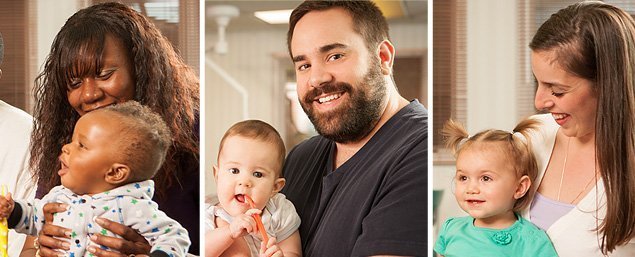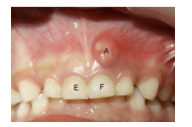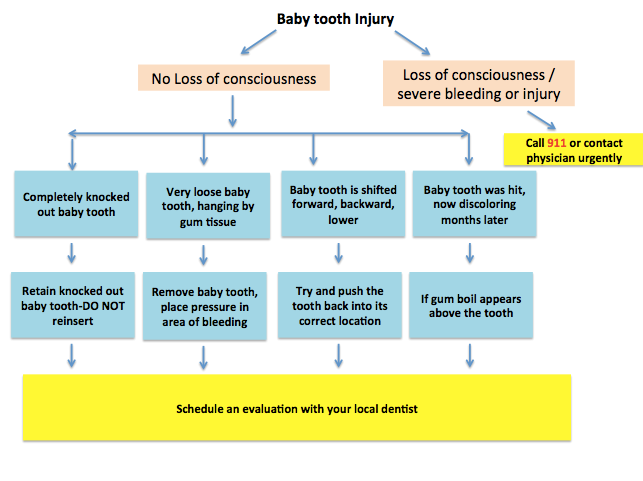





Escrito por: Avani Khera, DMD
Accidents happen!
From playing sports, to roughhousing with their siblings, many children suffer trauma to their teeth. Many dental injuries are sports-related, most commonly due to basketball or baseball. Making sure your child wears a mouth guard, helmet, and face guard during sports activities is an important way of preventing dental trauma from happening in the first place! Custom mouth guards are recommended and available through your dentist. Generic mouthguards are available over the counter at most drug stores.
If dental trauma does occur, use the tips below to help simplify the best next steps for your child. Most importantly, if your child has experienced a serious injury or is unconscious, call 911.
If your child has experienced dental trauma and 911 is not necessary, it’s important to see if the injury has occurred to a baby tooth or a permanent (adult) tooth.
Trauma to baby teeth:
Most of the time, traumas to baby teeth are not dental emergencies and an evaluation with the dentist can be scheduled within the week. If a baby tooth is completely knocked out, it is always important to find the tooth to confirm there are not any pieces of fragments stuck in the gums. The baby tooth should not be placed back into the mouth! Sometimes baby teeth get hit hard, but do not loosen or get knocked out. If the child complains of mild soreness, Tylenol or ibuprofen should do the trick.
In other instances, the baby teeth may become loose or displaced. It is not uncommon for the tooth to change color just as a bruise would. The colors include pink, yellow, or grey—these colors may last several months but, often times, return to normal color. If the nerve of the tooth slowly dies, an abscess or boil may form on the gums (see picture, letter A).

This can occur up to several months after trauma to the tooth. A dental evaluation should be scheduled to treat the infection and prevent damage to the permanent tooth that is waiting underneath to come in.

Tips and Advice:
Remember, while most dental trauma is preventable, accidents happen! And always contact your physician or dentist for additional guidance when needed.
To learn about what to do in the event of trauma to a permanent tooth, please click here.
Avani Khera, DMD is the Lutheran Medical Center Pediatric Dental Resident at St. Joseph Pediatric and Family Dental Center.
